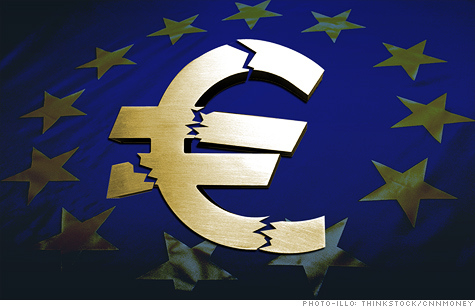By Wolfgang Münchau, Financial Times
Those who play down risks are good at counting but not at grasping the dynamics of a default
Of all foreseeable accidents, the potentially most catastrophic would, of course, be Grexit — a Greek exit from the eurozone. This could happen but it is by no means inevitable.
He could not be more wrong. In fact, I believe that the consequences of Grexit are likely to be as damaging to the eurozone as they would be to Greece itself. Those who play down risks tend to be good at adding up numbers but not at grasping the complex dynamics of a default on such a scale.
We should recall that US policy makers misjudged the impact of the bankruptcy of Lehman Brothers in 2008 for similar reasons. It was not the impact on those directly exposed to Lehman losses that mattered; what mattered were the vast global ripple effects.
If Greece were to leave the eurozone, the prices of shares and other assets would slump across Europe. A lot of people — and not only those with direct exposure to Greece — would be caught wrongfooted. At that point, investors will wonder whether the eurozone is still a monetary union or just a loose single currency regime with wide entrance and exit doors. They will immediately question whether Portugal is safe.
Also consider the wider political consequences. Grexit would leave Greece outside the eurozone but inside the EU. Would the EU be able to count on continued Greek support for sanctions against Russia? Would any rational policy maker want to deal with issues such as these for the sake of a few billion euros?
And what would Grexit mean for Greece? It may be catastrophic, though this would depend on how it is managed. Of the various bad outcomes, the absolute worst is a continuation of policies that have no chance of working and are not supported by the Greek electorate.
The best outcome would be debt relief combined with a shift from a fiscal surplus to a fiscally neutral budget, plus reforms to deal with corruption and tax collection. I believe these are still goals worth pursuing before resigning oneself to Grexit.
The new Syriza-led government’s stated goal is to achieve both a reduction in the total debt burden and the fiscal surplus that was agreed with the
creditors.
I, too, favour a grand conference of creditors and debtors that ends with an agreement to reduce the debt level to a sustainable level and immediately puts a halt to austerity.
I doubt such a grand bargain can be achieved in the next five months or so. The best outcome I can see is a compromise to refinance the government and banking system, ending austerity and placing the focus on growth. The debate about a grand debt conference would wait until later.
Is such a compromise realistic? The biggest challenge for the new government is to overcome the dominant economic narratives circulating in European capitals. However, its negotiating position is not hopeless.
The discussions between Greece and its creditors will almost certainly go down to the wire. Several deadlines lie ahead in the next few weeks and months.
Alexis Tsipras, prime minister, and Yanis Varoufakis, his finance minister, are correct in their economic judgment but they should remember that there is a fine line between the right and the righteous. The various unilateral pronouncements last week were not a good start.
What if Mr Tsipras miscalculates? Or the creditors? The Greeks would no doubt interpret a “take-it-or-leave-it” stance by creditors as an act of economic violence.
If they are forced out, they might seek closer financial ties with Russia. I struggle to see how the EU could conceivably find that desirable. All parties should realise that Grexit would constitute an irreparable failure of economic diplomacy.
If it were to happen, we would no longer just talk about Greece but the future of the euro and the EU itself.









